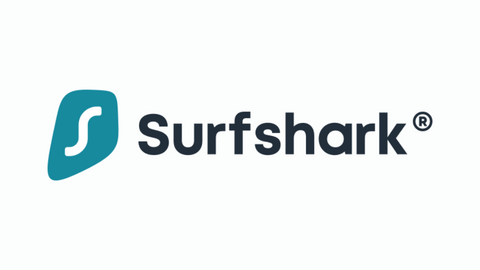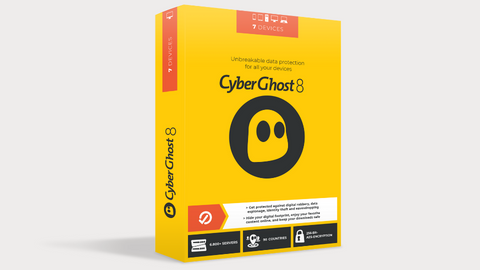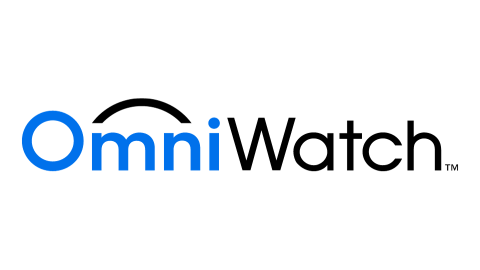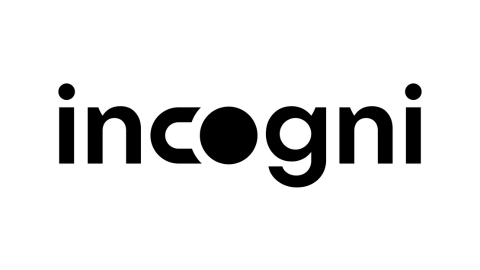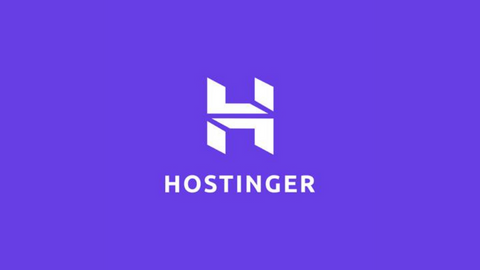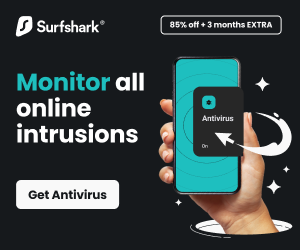For years, the “freemium” model has been the favored marketing strategy for SaaS platforms to attract new startups and SME customers. Now, even enterprises are willing to use “free trial” offers from new marketing SaaS providers to secure a winning edge on the cheap.
While freemium offers are great for slashing the cost of evaluating a new marketing platform, have you considered the cybersecurity risks this free trial offers to your IP, data, and business?
TOP DEALS
Table of Contents
Why Should You Care About Cybersecurity Risks In Someone Else’s SaaS?
It’s easy to get caught up in simply trying to achieve your marketing objectives without considering what might be at risk for your organization.
Given that most of our systems are connected, either through directly coded integrations using APIs or via external services like Zapier, you can be assured that a security breach in one service could expose your crown jewels to the internet’s underbelly.
As a marketer, you can’t possibly be expected to understand how all your company’s CRM, ERP, and digital systems are connected. However, you are responsible for ensuring that any external services you use do not increase the risk of a security breach or corporate espionage.
People who have been blamed for making decisions that lead to cybersecurity breaches will tell you that the whole experience feels like you’re getting a root canal without any pain relief.
While no business wants to be hacked, you might be surprised to learn that very few SaaS businesses take all the necessary steps to protect their users. Worryingly, Trustwave found as far back as 2016 that “fewer than one in four organizations consider themselves to be ‘very proactive’ in the context of security testing.”
In our interconnected applications world, these stats from Norton should have you concerned:
- The global average cost of recovering from a cybersecurity breach is US$3.86, which is money that would otherwise have been invested in growth projects.
- On average, it takes 196 days to detect a security breach, which is an alarming amount of time for hackers to rummage through your network, applications, and databases.
READ ALSO: How Your Business Can Get the Most Out of the Latest Software and Technology
3 Critical Cybersecurity Questions Before Accepting A Free Trial Of A Marketing SaaS?
It is not uncommon to be excited about discovering a new product that you think might save you an excessive amount of time or help you finally achieve those seemingly unreachable targets your boss sets for you.
But it would be best if you remembered that time is your friend. And knowing the right questions to ask of the SaaS provider is your secret weapon:
Question 1: Does the marketing SaaS vendor have a publicly published security policy?
Publicly published security controls may not provide detailed information about the efficacy of security policies, but they represent a level of maturity. Such policies signal that SaaS companies are taking proactive steps to protect your data and their IP, and ultimately, they think that their relationship with you and their other customers is valuable enough to protect.
All popular cloud services you likely use, such as Dropbox, Slack, AWS, and Gmail, have pages that outline their security practices. Look them up.
READ ALSO: 10 Innovative Cybersecurity SaaS Ideas
Question 2: Does the marketing SaaS vendor have any information security accreditations?
Have you ever seen companies claiming to be ISO 9001, ISO 4008, or ISOxyz accredited? There is an ISO certification for information security, ISO 27001, and you should look for it or something similar to SOC 2 when evaluating your next marketing SaaS vendor.
These accreditations do not guarantee that the accredited vendor’s SaaS product is free of security vulnerabilities. However, such accreditations signal that they have the policies and processes in place, and if their teams follow those processes, their applications should be secure.
Question 3: When did the vendor last conduct a penetration test on their application and infrastructure?
Interestingly, an HP Enterprise study found that 72% of web applications have at least one security vulnerability that allows hackers to access things only admins can see. The only way to ensure that such security holes don’t riddle the application you want to use is to review the vendor’s penetration testing report.
Most smart SaaS companies regularly utilize reputable web application penetration testing services to identify and patch security vulnerabilities before releasing a new app version. And if you ask them for the latest version of such a report, they will be more than happy to provide it to you – if you’re a serious buyer.
Frequently Asked Questions
What questions should I ask before considering a SaaS?
When considering a SaaS product, gathering all the necessary information before making a decision is essential.
Here are some questions to ask:
- What specific problem does the SaaS product solve?
- What are the features and functionalities of the product?
- How is data security and privacy ensured?
- What is the pricing structure, and are there any additional costs?
- What level of customer support is provided?
- Are there any integration capabilities with existing systems?
- What is the onboarding process like?
- Are there any contractual obligations or long-term commitments?
READ ALSO: Why SaaS Security Matters for Amazon Sellers Using Third-Party Tools
How do you evaluate a SaaS product?
When evaluating a SaaS product, consider the following factors:
- Functionality: Assess if the product meets your needs and if its features align with your requirements.
- Reliability: Look into the product’s uptime, performance, and service-level agreements (SLAs) to ensure reliability and stability.
- Scalability: Determine if the SaaS product can grow with your business and handle increasing user demands.
- Security: Assess the product’s security measures, including data encryption, access controls, and compliance with relevant industry regulations.
- Integration: Consider if the SaaS product integrates smoothly with your existing systems and workflows.
- User Experience: Assess the product’s usability, user interface, and overall user experience to ensure it is intuitive and easy to use.
How do you choose a SaaS product?
Choosing a SaaS product involves a few steps:
- Identify your needs: Determine the specific challenges you want the SaaS product to address and the goals you aim to achieve.
- Research and compare options: Explore different SaaS products that align with your requirements and compare their features, pricing, customer reviews, and reputation.
- Free trials and demos: Take advantage of free or product demos to test the SaaS product and evaluate its suitability for your business.
- Consider scalability and flexibility: Select a SaaS product that can support your future growth and adapt to evolving business needs.
- Customer Support and Service: Evaluate the level of customer support provided, including its availability, response time, and the range of available support channels.
- Consider user feedback: Look for testimonials, case studies, and reviews from existing customers to gauge their satisfaction and experiences with the product.
What aspects of marketing SaaS products?
Marketing SaaS products requires a strategic approach to reach and attract the target audience. Here are vital aspects to consider:
- Target audience: Define your target market and create buyer personas to understand their needs, pain points, and preferences.
- Value proposition: Communicate the unique value and benefits your SaaS product offers compared to competitors.
- Content marketing: Develop informative and valuable content such as blog posts, whitepapers, videos, and webinars to educate and engage your audience.
- Online presence: Establish a solid online presence through a well-designed website, optimized landing pages, and active social media profiles.
- Customer testimonials and case studies: Highlight success stories and positive customer experiences to build trust and
Is This A Foolproof Way To Guarantee That A Marketing App I Want To Evaluate Is Secure?
Unfortunately, no. There is no “foolproof” or “ironclad” way to ensure that a SaaS vendor has mitigated all cybersecurity risks. However, there are proven ways to ensure that your prospective SaaS vendor has minimized the likelihood of a serious cybersecurity breach.
If you want some external validation of a SaaS service provider’s level of protection, you could try running a free scan of their HTTP security headers. HTTP security headers are the frontline of defense for web applications against hackers.
A free vulnerability scanning tool like Cyber Chief will quickly indicate how seriously your prospective MarTech vendor takes their app security.
Ask these questions before you accept your subsequent free trial and satisfy yourself that your company’s sensitive information doesn’t fall into the hands of people who shouldn’t have it.
SUGGESTED READINGS
- Summer Sales: Top Cybersecurity Products Special Offers And Deals
- How To Get Surfshark VPN Free Trial
- How To Protect Your SaaS Applications Against Ransomware
- Identity And Access Management Takes Up A Month Every IT Year
- Implementing SaaS Security – A Checklist
- Cybersecurity Strategies To Protect Your Critical SaaS Data
- How To Choose The Best Password Manager
About the Author:
Christian Schmitz is a professional journalist and editor at SecureBlitz.com. He has a keen eye for the ever-changing cybersecurity industry and is passionate about spreading awareness of the industry's latest trends. Before joining SecureBlitz, Christian worked as a journalist for a local community newspaper in Nuremberg. Through his years of experience, Christian has developed a sharp eye for detail, an acute understanding of the cybersecurity industry, and an unwavering commitment to delivering accurate and up-to-date information.




